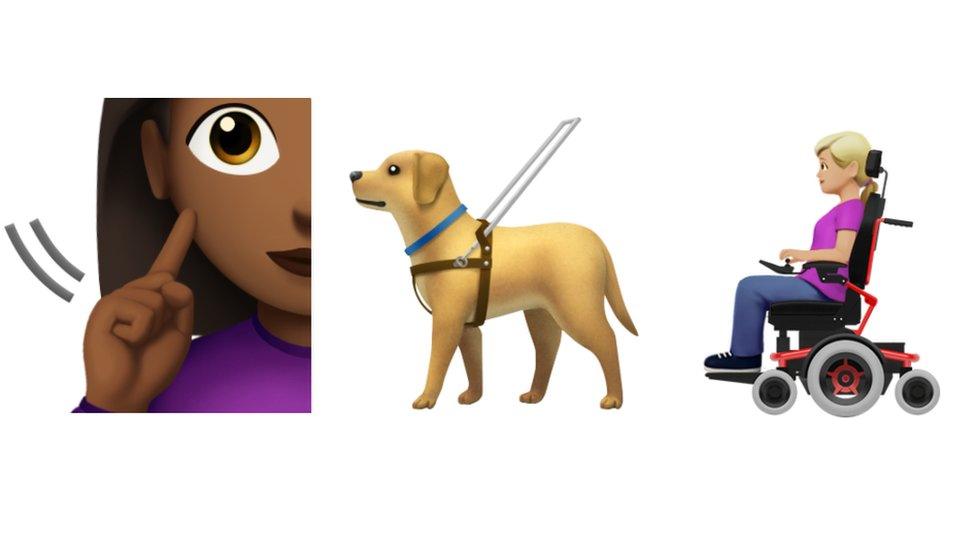'An emoji will help us to feel seen'
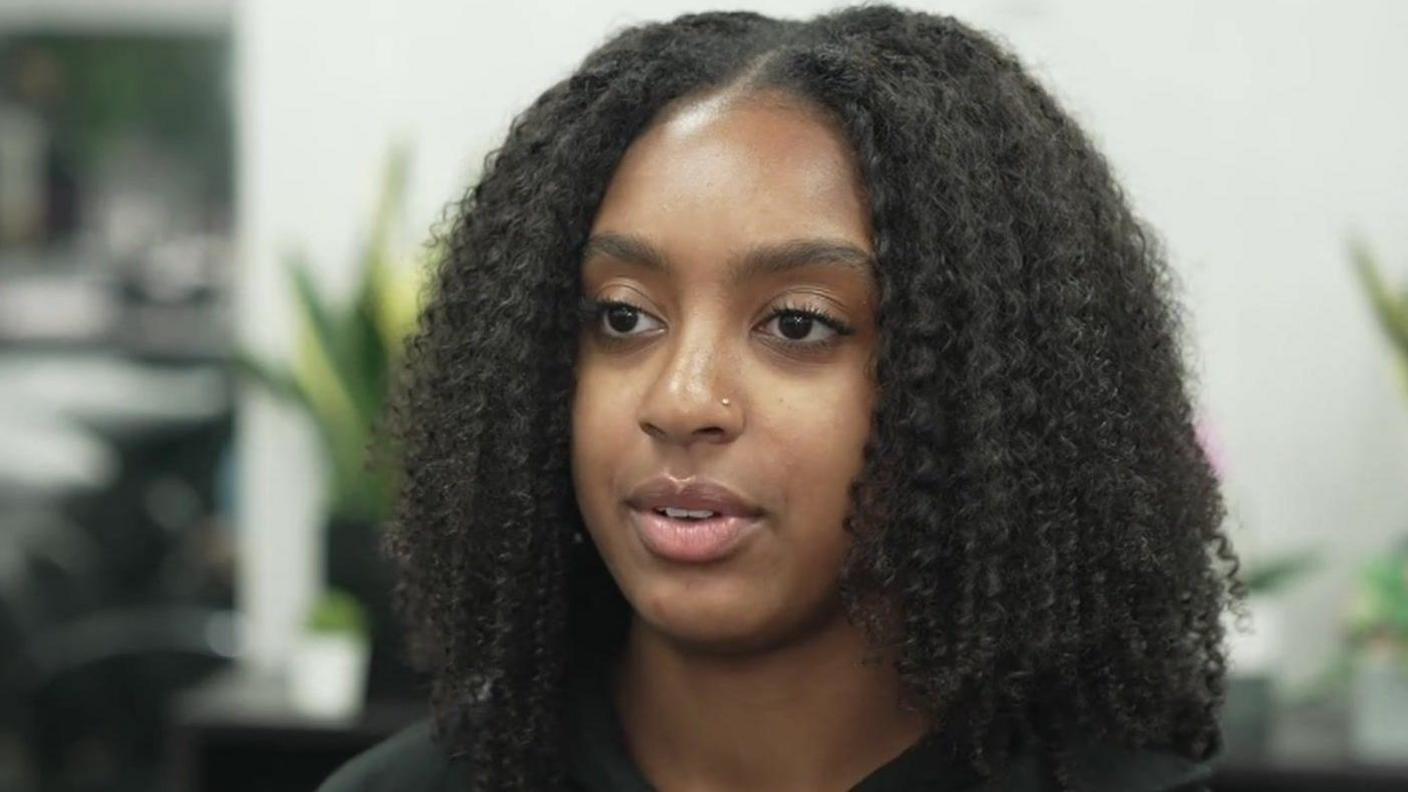
Jayzik says there is a negative stereotype around coarser hair textures that needs to be removed
- Published
For Jayzik, a young person working with community support group Rise.365, designing emojis with black and mixed race hairstyles is about representation.
She told BBC London: “I feel like there's a negative stereotype around coarser hair textures like Afro hair and I feel that needs to be removed.
“It should be in an emoji because it will help us to feel seen.”
Rise.365, a community support group, said although there are almost 4,000 emojis, not a single one features a black or mixed race hairstyle, so its members from Hackney have decided to address this by designing four new emojis.
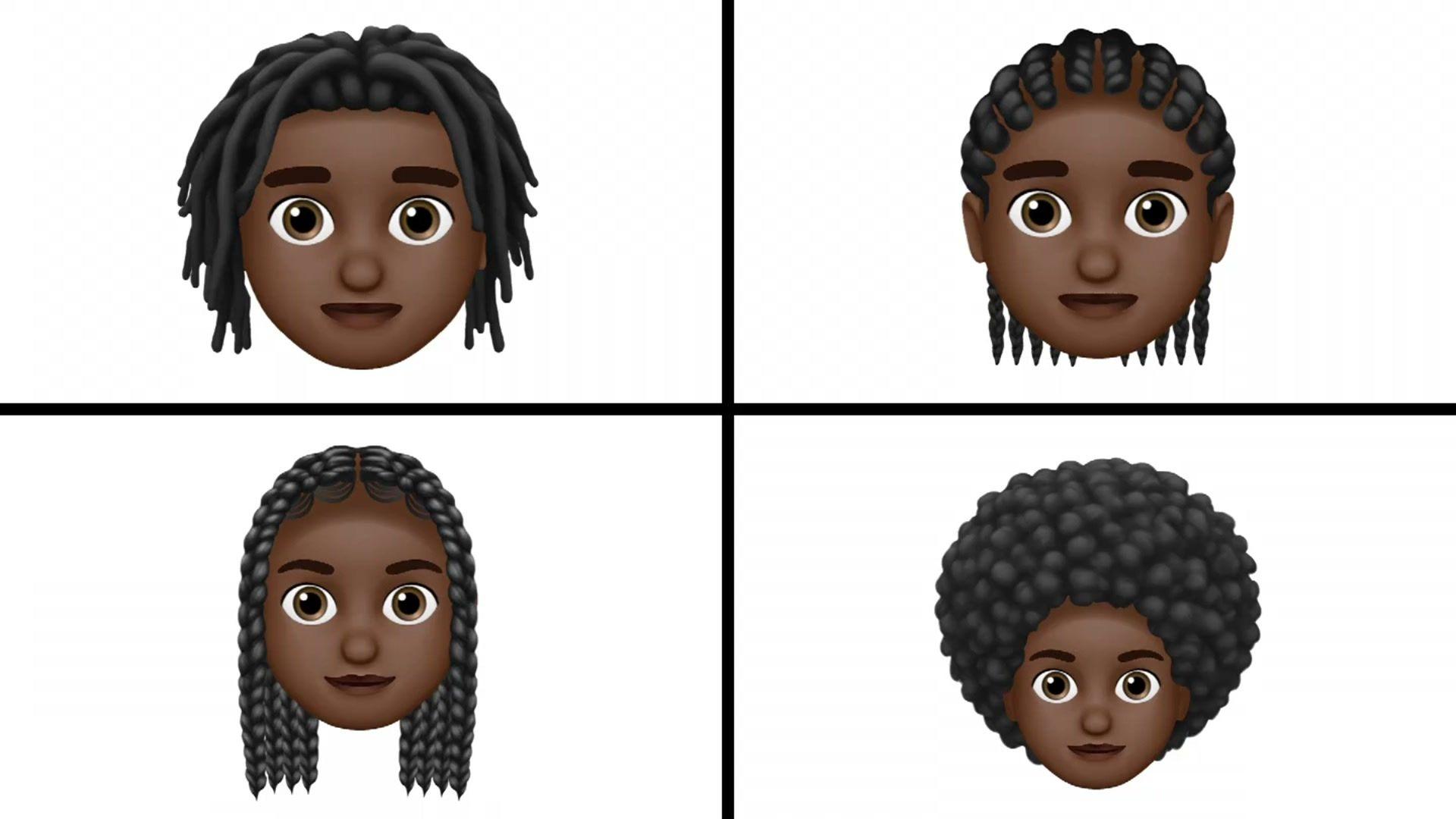
The aim of the emojis is to provide greater representation
It said the emoji designs also feature braids and locs, styles worn and designed by the young people it helps.
Chavez, a young person from the group, explains that Afro hair emojis are about combatting negative stereotypes.
He said: “Especially in a school environment it is things like people wanted to touch your hair, talk about your hair.
“Talking about how your hair is thick, how it is untamed. It'll make you feel like you don't belong and it will make you feel like people are against you.”
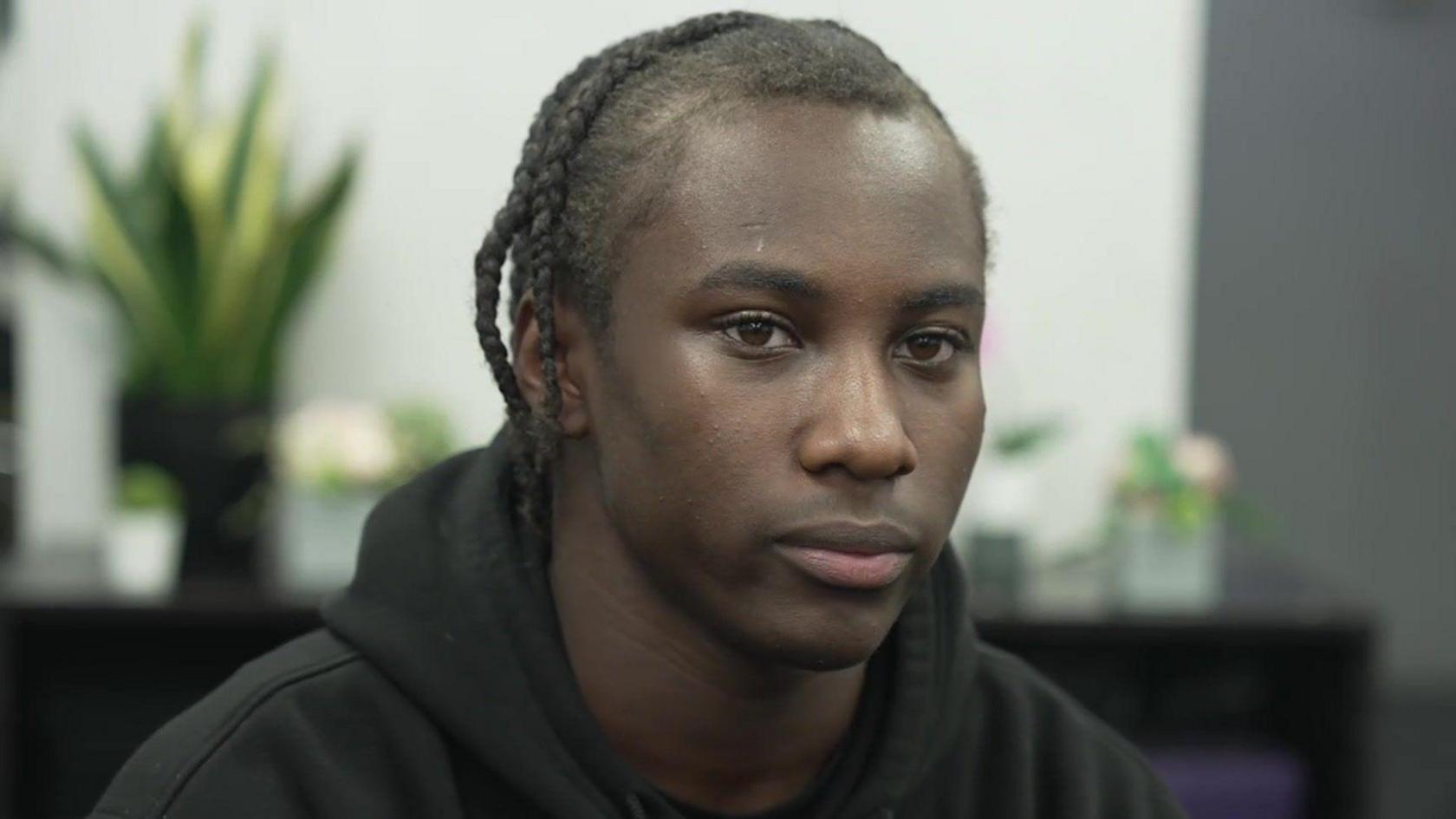
Chavez wants the emojis to improve understanding of Afro hair
Rise.365 polled 104 of its black and mixed race members, and found 61% experienced discrimination or bullying because of their hair type or hairstyle, with 63% having had their hair touched without their consent.
About three quarters (74%) of those surveyed felt there was not an emoji that represented their hairstyle, and almost a third (32%) said this made them feel overlooked and forgotten.
The community group said it now plans to submit their icons to the Unicode Consortium, which approves or rejects new designs.
Amina Grey, a youth mentor at Rise.365, says the group needs show there is a need for these emojis and they need people to use their search engines to help.
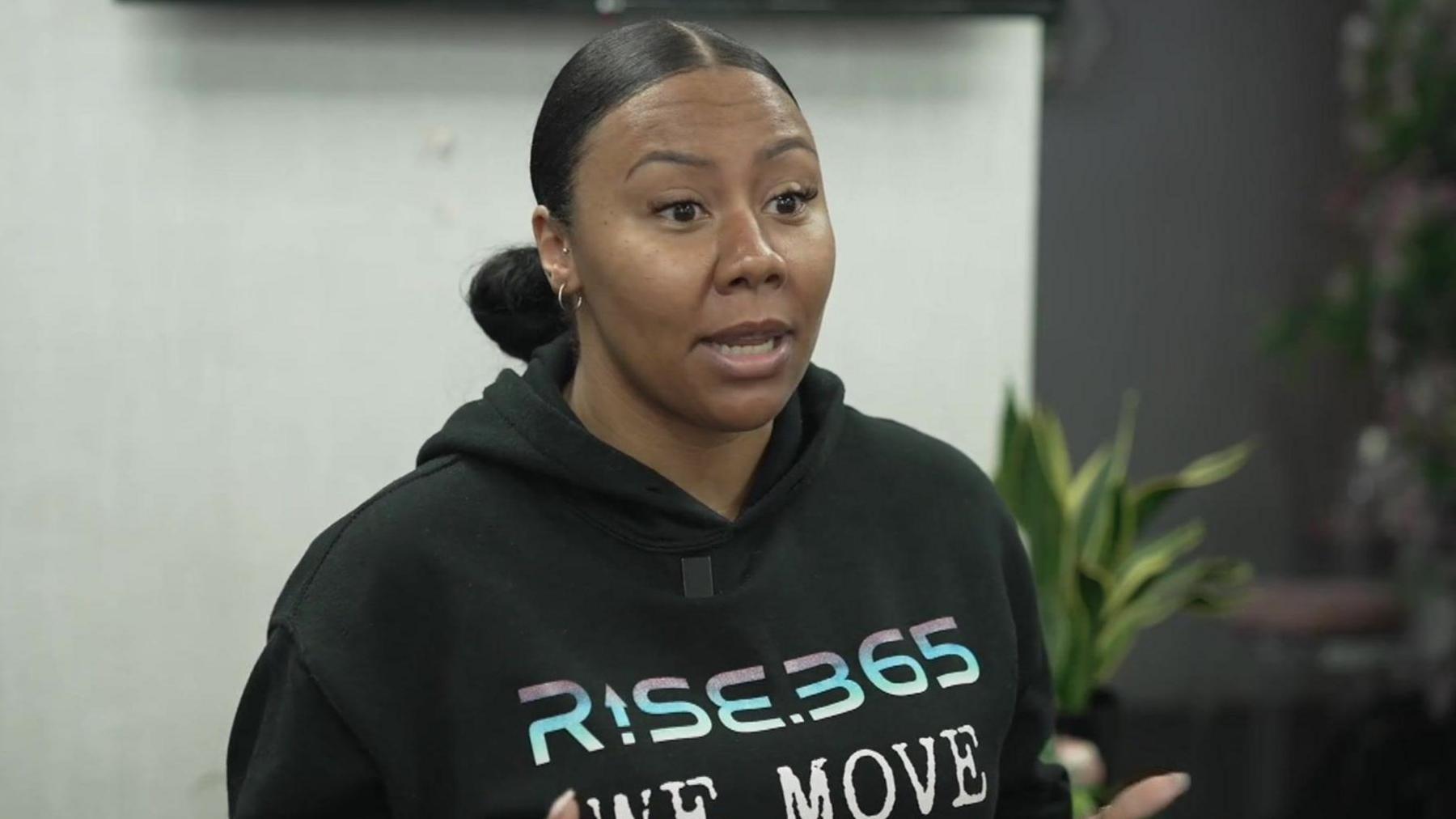
Amina Grey says the next step is to apply to Unicode
She told BBC London: “The next step of the process is to submit to Unicode, which is the governing body of emojis. That takes place next April. And what we need to do is show them that there is a need for the emojis.
“What we've been asking everyone to do on social media is to search Afro hair into Google - Afro hair emoji - and that will feed into the data that we then submit with our application form.
"The more data that we get, the more likely we are to get our submissions on to the keyboards.”
Teaching how to care for afro hair. Video, 00:01:41
- Published23 January 2019
Ritz applicant told 'Afro-style' hair was banned
- Published11 April 2023
'I couldn't find dolls with afro hair' Video, 00:01:25
- Published20 August 2023
Afro hair: 'Pupils mustn't face discrimination'
- Published26 September 2023
The community group's efforts also aim to highlight hair-based discrimination - also known as texturism.
This is when Afro-textured or coarse hair types and hairstyles are viewed negatively such as being seen as unprofessional, unattractive or unclean.
Joyclen Brodie-Mends Buffong, founder of Rise.365, hopes that introducing these emojis "will not only help more black and mixed race people feel equally represented", but that it will start "conversations around the bigger issues of texturism and Afro hair discrimination".
She added black and mixed race people "are confronted by texturism on a daily basis, and so we really want to start changing perceptions for future generations - starting where it matters most, with young people".
Listen to the best of BBC Radio London on Sounds and follow BBC London on Facebook, external, X, external and Instagram, external. Send your story ideas to hello.bbclondon@bbc.co.uk, external
Related topics
Related stories
- Published24 July 2021
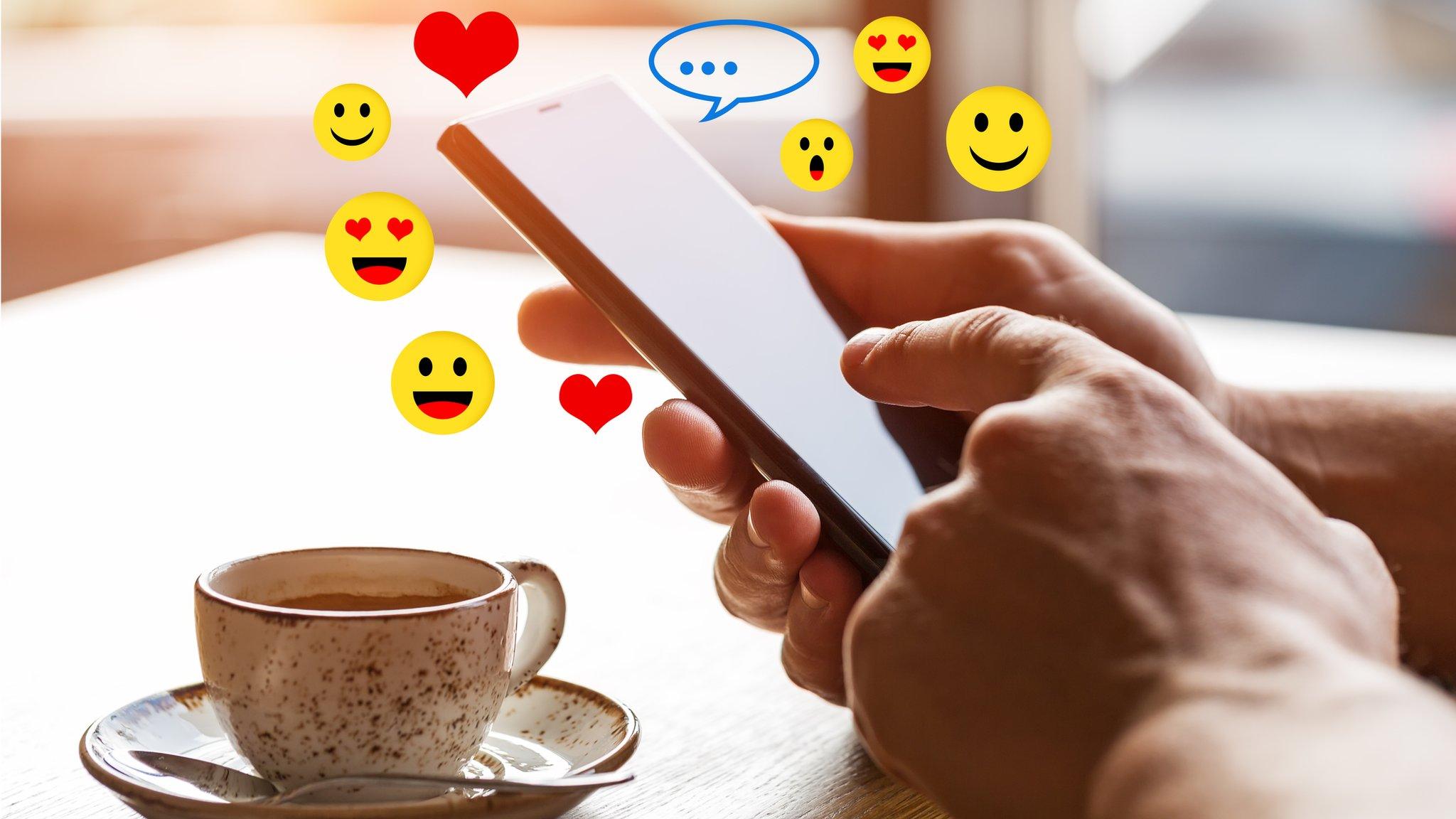
- Published18 August 2021
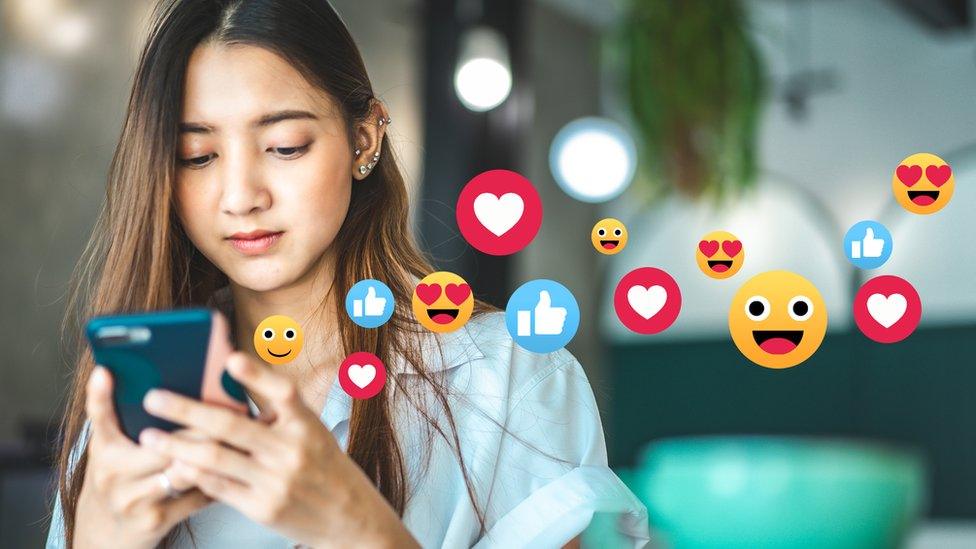
- Published17 July 2019
